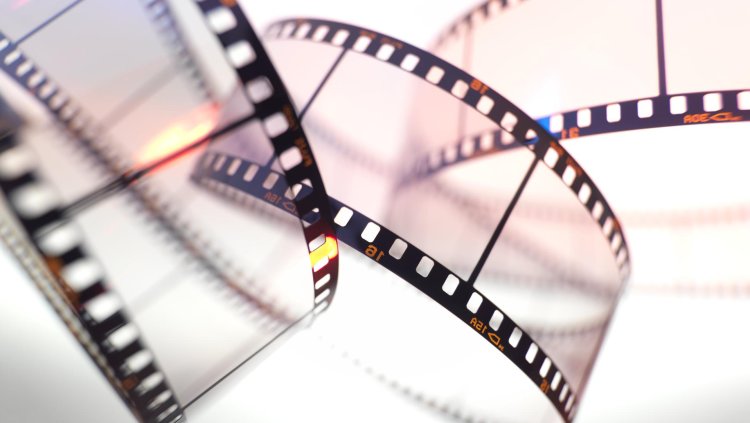In the world of film production, ensuring that your equipment is adequately protected is crucial. Many filmmakers, whether they are working on a low-budget indie film or a high-budget feature, often overlook the importance of film equipment insurance due to misconceptions about cost. The reality is that film equipment insurance might be more affordable than you think. This article will explore the ins and outs of film equipment insurance, dispel common myths, and provide practical tips on how to secure affordable coverage for your production needs.
Understanding Film Equipment Insurance
Film equipment insurance is designed to protect your valuable gear from a variety of risks. This includes coverage for theft, damage, and loss, as well as liability protection. The purpose of this insurance is to safeguard your investment and ensure that you are not financially crippled by unexpected events.
Types of Coverage Typically Included:
- Theft: Protects against the loss of equipment due to theft.
- Damage: Covers repairs or replacement if equipment is damaged during use.
- Loss: Compensation for equipment that is lost or cannot be recovered.
- Liability: Protects against third-party claims related to accidents involving your equipment.
Having comprehensive insurance is crucial for mitigating risks, especially in the unpredictable world of film production.
Factors Influencing Insurance Costs
Several factors influence the cost of film equipment insurance. Understanding these factors can help you find the most cost-effective policy.
-
Types of Equipment Insured: The type and value of your equipment play a significant role in determining your insurance premium. High-end cameras, lighting, and sound equipment typically have higher premiums compared to less expensive gear.
-
Scope of Coverage: Insurance policies vary in terms of coverage. Policies that offer worldwide coverage or cover multiple types of risks may cost more. Conversely, limited coverage might be more affordable but could leave gaps in protection.
-
Value of Equipment: The total value of the equipment you wish to insure directly impacts the cost. Policies are often priced based on the insured value, so higher-value equipment will generally lead to higher premiums.
-
Risk Factors: The risk level associated with your production environment can also affect costs. For instance, filming in high-risk areas or using equipment in extreme conditions might lead to higher insurance costs.
Common Misconceptions About Insurance Costs
There are several myths surrounding the cost of film equipment insurance that can deter filmmakers from getting the coverage they need.
Myth 1: Film Equipment Insurance is Prohibitively Expensive
Many filmmakers believe that insurance is too expensive for their budget. However, there are various insurance options available that cater to different budgets. By shopping around and comparing quotes, you can find a policy that fits within your financial constraints.
Myth 2: Only High-Budget Productions Need Insurance
Insurance is often associated with big-budget productions, but it is equally important for smaller projects. Even low-budget films can benefit from insurance, as unexpected events can still lead to significant financial losses.
Myth 3: Small Productions are Too Risky to Insure Affordably
Small productions are not necessarily too risky to insure. In fact, many insurance providers offer tailored policies for smaller projects. By accurately assessing your needs and risks, you can find affordable insurance options that offer adequate protection.
Comparing Insurance Options
To ensure you get the best deal on film equipment insurance, it’s important to compare different options. Here’s how to approach it:
-
Overview of Insurance Providers: Research various insurance providers who specialize in film equipment insurance. Look for companies with a good reputation and positive customer reviews.
-
Comparing Quotes: Obtain quotes from multiple providers. Ensure that you are comparing similar coverage levels to get an accurate comparison. Pay attention to the terms and conditions of each policy.
-
Role of a Broker: Insurance brokers can help you navigate the complexities of insurance options. They can provide valuable insights and help you find a policy that meets your needs at a competitive price.
Cost-Saving Tips
There are several strategies you can use to reduce the cost of film equipment insurance without compromising on coverage.
Bundling Insurance Policies: Consider bundling your film equipment insurance with other types of insurance, such as liability or property insurance. Many providers offer discounts for bundled policies.
Increasing Deductibles: Opting for a higher deductible can lower your premium. Just ensure that the deductible is an amount you can comfortably afford in the event of a claim.
Exploring Discounts: Some insurance providers offer discounts for specific types of equipment or production setups. Inquire about any available discounts that could reduce your overall premium.
Benefits of Investing in Insurance
Investing in film equipment insurance provides several benefits beyond just financial protection.
1. Peace of Mind: Knowing that your equipment is protected allows you to focus on your creative work without worrying about potential losses.
2. Financial Savings: In the event of a claim, insurance can save you from significant out-of-pocket expenses for repairs or replacements.
3. Enhanced Credibility: Having insurance can enhance the professionalism of your production, making you a more attractive partner for investors and collaborators.
Real-Life Examples
To illustrate the value of film equipment insurance, consider the following real-life examples:
1. Case Study: Indie Film Production An indie film production faced a major setback when a key piece of equipment was stolen. Thankfully, the production had insurance coverage, which helped them quickly replace the stolen gear and continue filming without a significant financial burden.
2. Testimonial: Filmmaker Experience A filmmaker who initially hesitated to invest in insurance found that having coverage was invaluable when their equipment was accidentally damaged during a shoot. The insurance covered the repair costs, allowing the production to stay on track.
How to Get Started
Securing film equipment insurance involves several steps:
Obtaining Quotes: Reach out to multiple insurance providers to get quotes. Provide detailed information about your equipment and production needs.
Evaluating Policies: Review the quotes and policy details carefully. Look for coverage that aligns with your requirements and budget.
Choosing the Right Policy: Based on your evaluation, select a policy that offers the best balance of coverage and affordability. Consult with an insurance broker if needed.
Film equipment insurance is an essential investment for any production, regardless of size. While many filmmakers perceive insurance as a costly luxury, it is often more affordable than anticipated. By understanding the factors that influence insurance costs, dispelling common myths, and exploring cost-saving strategies, you can find an insurance policy that meets your needs and budget. Protect your investment, ensure peace of mind, and keep your production running smoothly by considering film equipment insurance as a valuable and cost-effective tool.
FAQs
1. What types of risks does film equipment insurance cover?
Film equipment insurance typically covers risks such as theft, damage, loss, and liability. This ensures that your equipment is protected against a range of potential issues that could impact your production.
2. How can I find affordable film equipment insurance?
To find affordable insurance, compare quotes from multiple providers, consider bundling policies, increase deductibles, and explore available discounts. Consulting with an insurance broker can also help you find cost-effective options.
3. Is film equipment insurance necessary for small productions?
Yes, film equipment insurance is important for all productions, regardless of size. Even small productions can benefit from protection against unexpected events that could lead to significant financial losses.
4. What factors affect the cost of film equipment insurance?
The cost of insurance is influenced by factors such as the type and value of equipment, the scope of coverage, and the risk level associated with the production environment. Higher-value equipment and broader coverage generally lead to higher premiums.
5. Can I bundle film equipment insurance with other types of insurance?
Yes, many insurance providers offer discounts for bundling film equipment insurance with other policies, such as liability or property insurance. This can help reduce overall costs.
6. How do I choose the right insurance policy for my production?
Evaluate your insurance needs, obtain quotes from multiple providers, and review policy details carefully. Consider consulting with an insurance broker to help you select the best policy for your specific requirements and budget.:




















